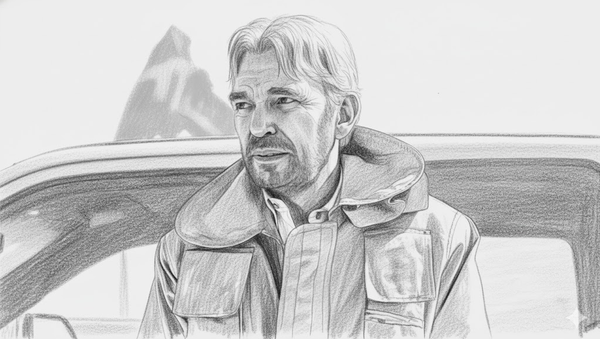The Silent Welcome: Why We Long for a Life with Pets
In the quiet arithmetic of our lives, we often measure our existence by the milestones we achieve, the relationships we build, and the love we give and receive. Yet, for millions, this equation of a fulfilled life remains incomplete without a silent, four-legged, feathered, or scaled variable. It’s a profound and ancient yearning, this desire for a pet. It’s a whisper in the soul that asks not for conversation, but for companionship; not for judgment, but for a warm presence at the end of a long day. Why do we, as a species so defined by our own complex intellect and society, feel this gravitational pull towards creatures who cannot speak our language, yet seem to understand our hearts?
The answer is as layered and intricate as the human psyche itself, a tapestry woven from threads of evolution, psychology, and the simple, unvarnished need for connection. This isn't just about wanting a "pet." It's about wanting a witness to our lives, a steady heartbeat in the quiet of an empty home. It is the desire for a different kind of love—purer, perhaps, in its simplicity.
The Echo of the Wild: An Ancient Pact
Long before our homes had Wi-Fi and our calendars were ruled by deadlines, our ancestors forged a pact with the wild. This relationship, born of mutual benefit, was etched into our very DNA. The first wolves that dared to draw near the flickering fire of early humans were not just seeking scraps; they were offering a trade. In exchange for food and warmth, they offered keen senses, protection, and a hunting partnership. This was more than domestication; it was the dawn of a co-evolutionary journey.

This ancient history is not just a footnote in a textbook; it lives within us. The modern-day desire for a dog, for instance, is an echo of that primordial alliance. When we look into the trusting eyes of a canine companion, we are, on some subconscious level, tapping into a bond that helped our species survive and thrive. This inherent connection to nature and its creatures is what biologist E.O. Wilson famously called "biophilia"—the innate human tendency to focus on and affiliate with life and life-like processes. In a world increasingly dominated by concrete, steel, and screens, a pet is a living, breathing tether to the natural world we have largely left behind. It’s a patch of wildness we can nurture in our living rooms, a reminder that we are, ourselves, still animals, governed by instinct and the need for a pack.
The Heart's Quiet Anchor: Companionship and Unconditional Love
At its core, the human experience is a search for connection. We build families, friendships, and communities to stave off the specter of loneliness. Yet, human relationships are often a complex dance of spoken words, unspoken expectations, and the potential for misunderstanding and judgment. A pet enters this intricate emotional landscape and offers something radically different: a silent, unwavering presence.

A pet does not care about your career missteps, your social faux pas, or the anxieties you harbor in the dead of night. They don't offer unsolicited advice or critique your choices. Their love is a constant, a baseline of affection that exists outside the transactional nature of many human interactions. It is a form of acceptance so pure it can be healing. For someone living alone, a pet transforms a house into a home. The quiet is no longer empty, but peaceful. The sound of paws on the floor, a gentle purr, or the happy chirp of a bird becomes the soundtrack of domestic life, a constant reassurance that you are not alone.
This offering of unconditional love is a powerful balm for the modern soul. In a world that constantly asks us to be more, to do more, to achieve more, a pet simply asks us to be. Their affection is not a reward for our success, but a given. This steady, non-contingent relationship can become a vital anchor, stabilizing us through the storms of life.
The Science of a Nuzzle: The Physiological Imperative
The comfort a pet provides is not mere sentimentality; it is a measurable, physiological phenomenon. The simple act of stroking a dog or cat, of feeling the rhythmic rise and fall of their breath, triggers a cascade of biochemical reactions in our own bodies. Research has consistently shown that interaction with animals can decrease levels of cortisol, the stress-inducing hormone. Simultaneously, it elevates the production of oxytocin, often called the "love hormone" or "bonding hormone."
Oxytocin is the same hormone that floods a new mother's system, forging the powerful, primal bond with her infant. It is the chemical messenger of trust, empathy, and connection. When we cuddle a pet, our brains respond by releasing this neurochemical, creating a tangible sense of calm, well-being, and attachment. This explains why therapy animals are so effective in hospitals, nursing homes, and schools. They are not just a cute distraction; they are agents of physiological change, capable of lowering blood pressure, reducing anxiety, and even mitigating the effects of depression and PTSD.
Furthermore, the responsibility of pet ownership often nudges us towards healthier lifestyles. A dog needs to be walked, rain or shine. This simple, daily requirement provides a consistent source of gentle exercise, getting owners outdoors and moving their bodies in a way they might otherwise neglect. The routine and structure that a pet's needs impose upon our lives can also be profoundly grounding, particularly for those struggling with mental health challenges. The day must have a shape when a small life depends on you for its meals, its exercise, and its well-being.
A Mirror to Our Better Selves: Purpose and Nurturance
In our quest for self-improvement, we often overlook one of the most effective catalysts for personal growth: caring for another being. A pet offers us a direct and daily opportunity to practice empathy, patience, and selflessness. Their needs are immediate and their communication is non-verbal, forcing us to become more attuned, more observant, and more responsive caregivers.
This act of nurturing—of providing food, shelter, comfort, and love—fulfills a deep-seated human need to be needed. In a world where we can often feel like a small cog in a vast machine, the responsibility of caring for an animal provides a clear and undeniable sense of purpose. Our presence, our actions, directly and profoundly impact the quality of another creature's life. This is a powerful affirmation of our own significance.
For many, especially those whose children have grown and left home or those who have chosen not to have children, a pet can become a cherished focus for their nurturing instincts. They allow us to love freely and fiercely, to worry, to protect, and to delight in the simple joys of a happy, thriving creature. In caring for them, we are often brought face to face with our own capacity for kindness. They hold up a mirror, reflecting back a version of ourselves that is more patient, more loving, and more connected than we might have believed ourselves to be.
The Social Bridge: A Catalyst for Human Connection
Ironically, these non-human companions often make us more human by deepening our connections with other people. A pet can act as a powerful social lubricant, breaking down the invisible barriers that so often exist between strangers. Walk a dog through a park, and you are no longer an anonymous passerby. You are a "dog person," an instant member of a silent, global fraternity. Conversations spark up with fellow owners, a shared language of breeds, behaviors, and funny anecdotes.
Pets provide an instant, accessible topic of conversation, a neutral ground upon which to build rapport. They are a reason to visit the local park, to join a training class, or to simply linger on the sidewalk for a moment, allowing our animals to greet each other. In an age of digital isolation, where our communities are increasingly virtual, a pet can root us firmly in our physical neighborhood. They pull us out of our homes and into the world, fostering the kind of spontaneous, face-to-face interactions that are essential for a healthy social life. They are, in essence, ambassadors of connection, not just for us to them, but through them, to each other.

A Welcome Silence
The enduring desire for a pet is, in the end, a desire for a relationship that operates beyond the clamor of human language. It is a longing for a connection that is felt rather than spoken, understood through a shared glance, a gentle touch, or the simple, comforting weight of a body curled up beside our own.
They are our confidants, the silent keepers of our secrets and sorrows. They are our jesters, whose playful antics can shatter a somber mood. They are our teachers, reminding us to live in the present moment, to find joy in a patch of sunlight on the floor, and to love without reservation.
In their silent, steady companionship, we find a reflection of our own humanity, stripped down to its most essential elements: the need to love, the need to be loved, and the profound comfort of a shared existence. They do not complete us, but they enrich our lives in ways that little else can, filling the quiet spaces with a living, breathing warmth that asks for nothing but our presence in return. And in a complicated world, that simple, silent welcome is more than enough. It is everything.



